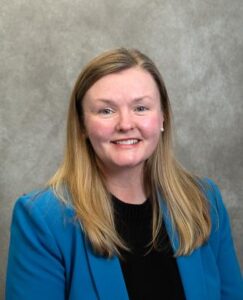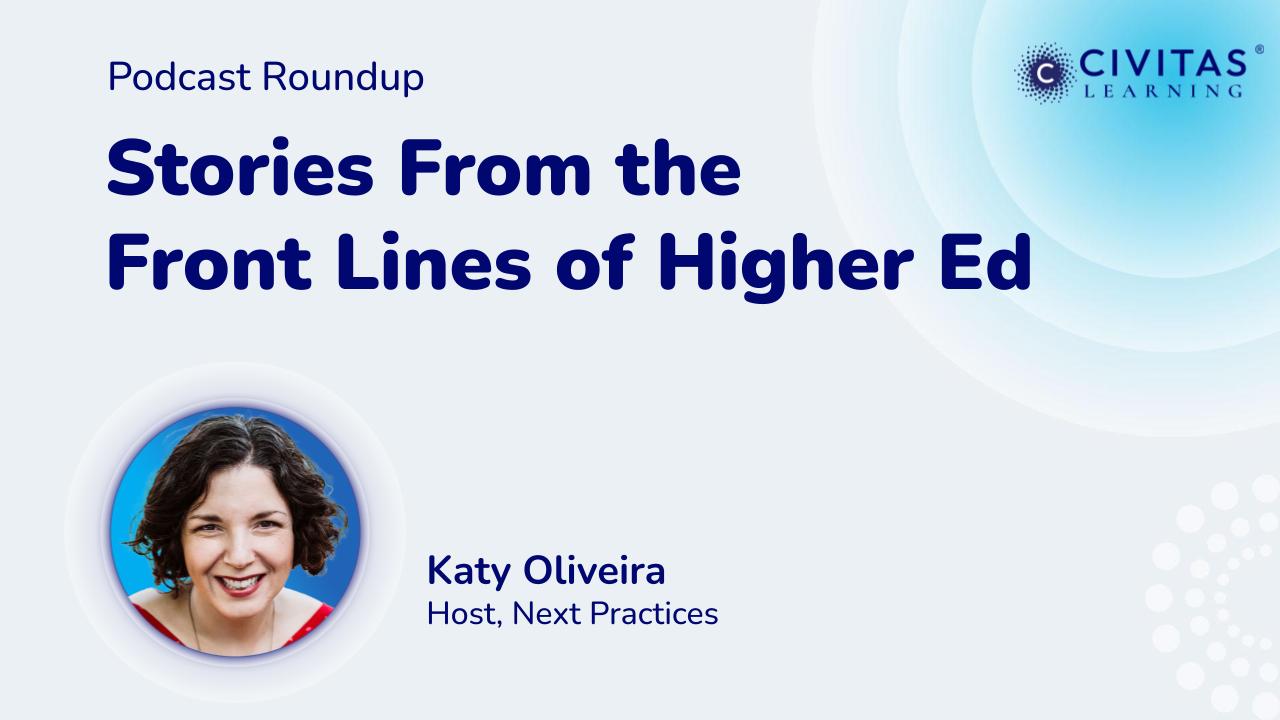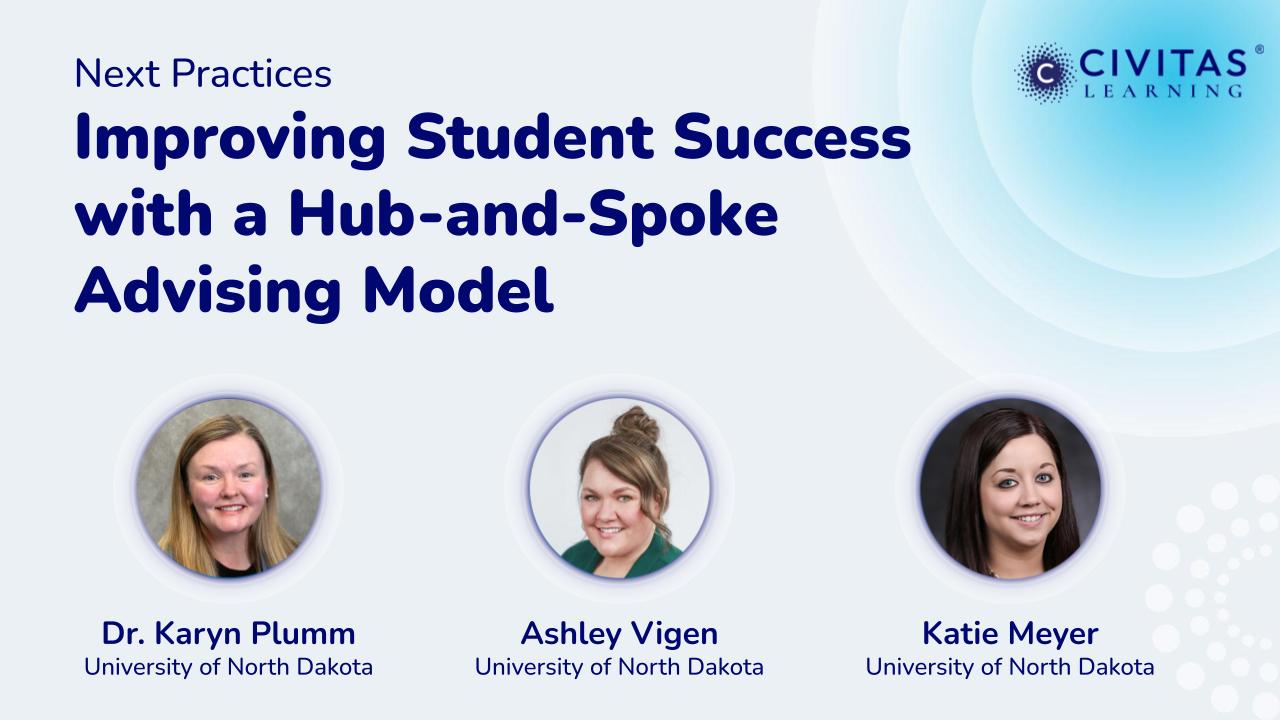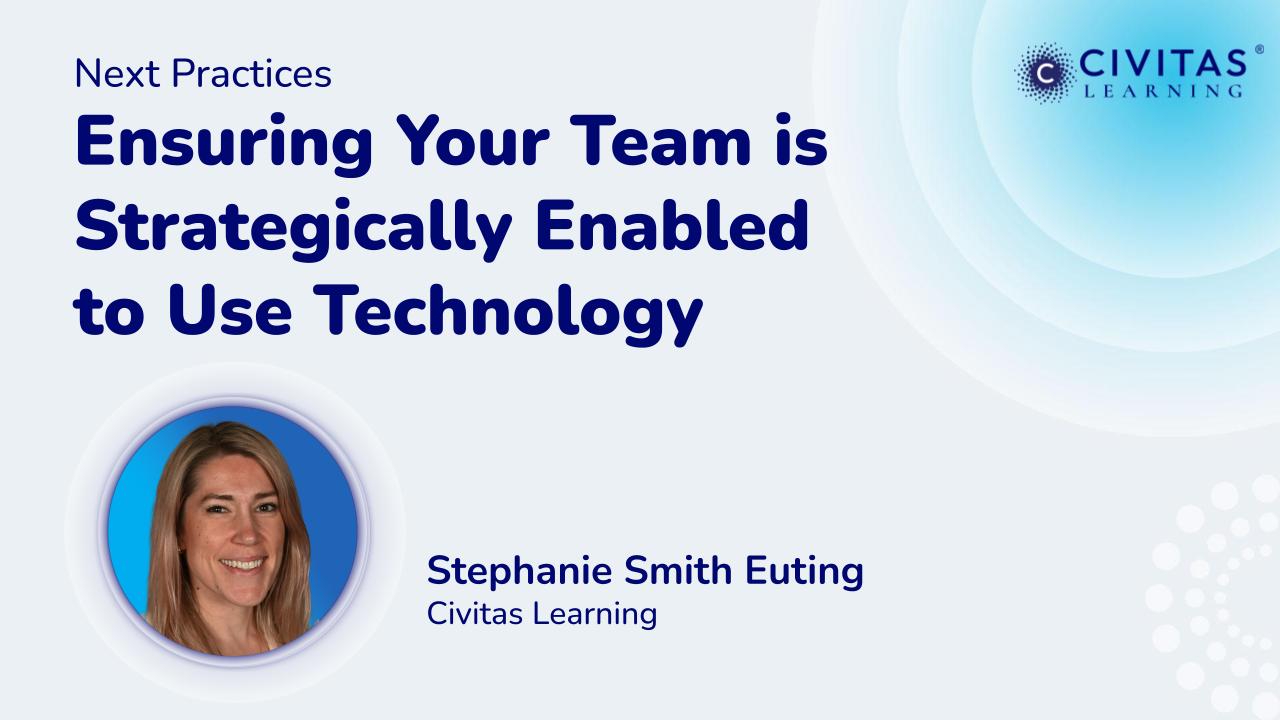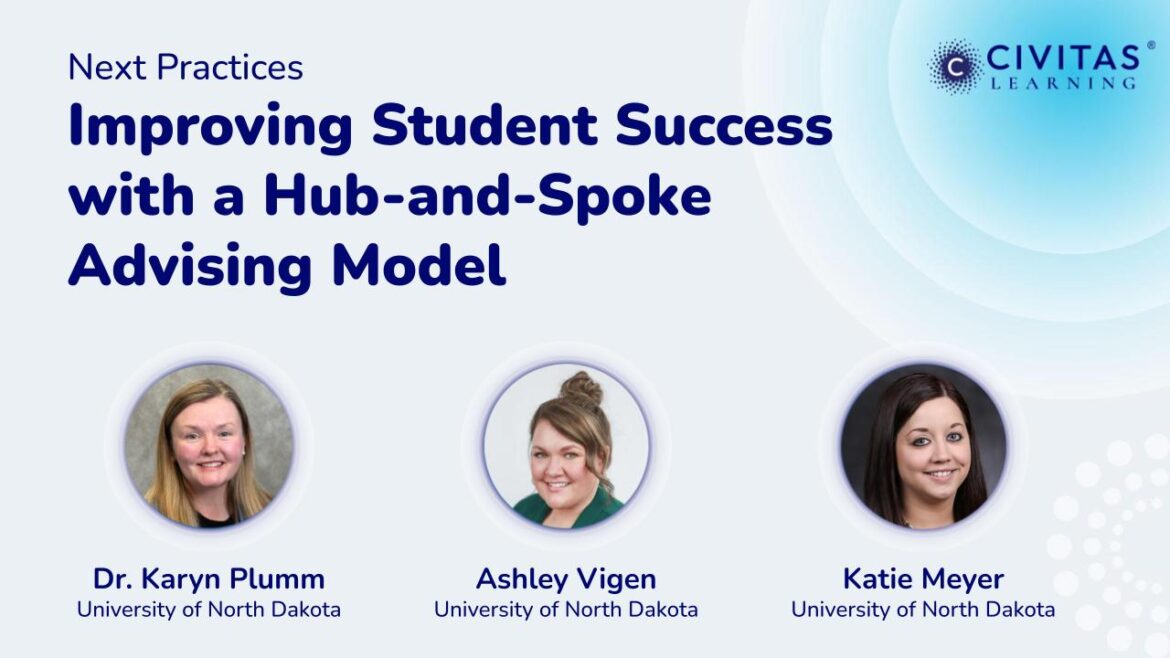
Improving Student Success with a Hub-and-Spoke Advising Model
Share this Post
Subscribe: Spotify | Apple Podcasts | Youtube Music | Transcript
What if your advising system could see students not just as a collective, but as individuals with unique needs, goals, and challenges? At the University of North Dakota (UND), that vision is becoming reality.
In this episode of Next Practices, we hear how UND leaders are rethinking advising by shifting from a traditional faculty-led approach to a hybrid hub-and-spoke model. The result? Stronger student relationships, more consistent support, and measurable gains in retention.
From Tradition to Transformation
Our guests—Dr. Karyn Plumm, Vice Provost for Undergraduate Studies and Student Success; Ashley Vigen, Director for Student Academic Success; and Katie Meyer, Hawk Central Specialist and Data Coordinator—describe UND’s journey to redesign advising.
Instead of students navigating a maze of disconnected touchpoints, professional advisors are now embedded directly within departments. These advisors are supported by a centralized “hub” team, equipped with real-time student insights, powered by Civitas Learning’s Student Impact Platform, and backed by thoughtful technology. The shift helps ensure that no matter where a student turns, they receive consistent, informed guidance.
Why Change?
The team recognized that students were struggling with fragmented experiences and inconsistent advising plans. To address this, UND invested in a model that centralizes oversight while still keeping advisors close to the academic units they serve.
This approach acknowledges that students need different types of support depending on their goals, challenges, and timing. Using Civitas Learning’s platform to centralize and surface student data across departments UND is breaking down silos and creating a seamless journey.
Keys to Successful Change
UND’s leaders emphasize that transformation isn’t just about new structures or software, it’s about people and culture.
- Intentional change management: Training, communication, and collaboration were prioritized from the start.
- Broad buy-in: From faculty governance to student services, stakeholders were invited to the table and given visibility into data that mattered most for their roles.
- Continuous improvement: Even after a smooth launch, the team continues to refine processes and enhance how the platform meets diverse student needs.
Early Results and Lessons Learned
The hub-and-spoke advising model is already delivering:
- Retention is rising as students receive more personalized and proactive support.
- Faculty trust is strengthened by transparent data-sharing through Civitas Learning’s connected workflows.
- Students no longer have to “retell their story” at every turn—information follows them, creating continuity.
The team also shares practical lessons: take time to onboard thoroughly, ensure data accuracy, choose champions to lead adoption, and build a robust communication plan so every student knows where to turn for help.
What’s Next?
UND’s advising transformation shows what’s possible when institutions move beyond incremental tweaks to rethink the entire student experience. By investing in people, data, and culture, campuses can turn complexity into connection and create lasting change.
Listen to the full episode to hear how UND is building an advising system that works for every student, not just the average student.
Links and Resources:
